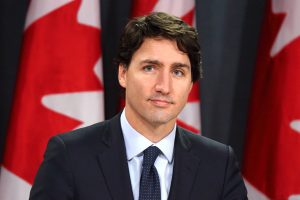From Punjabi child to new-Canadian teenager, then suspected Sikh terrorist and national cause celebre, then Edmonton bus driver and city councillor and now, introduced as the new federal Minister of Infrastructure and Communities, Amarjeet Sohi’s life path has been perillous and dizzying.
Sohi squeaked past Conservative Party incumbent Tim Uppal by 92 votes in the Edmonton riding of Mill Woods on election night, Oct. 19, and was sworn into Prime Minister Justin Trudeau’s cabinet on Nov. 4. Sohi — a marquee minister given the prominence of infrastructure in the Liberal campaign — granted an interview recently to discuss his plans to start spending a promised infrastructure bounty that has been set at $125 billion over the next 10 years.
Born into a moderate Sikh family in northern India in 1964, Sohi migrated to Canada at age 17 and became politically active, opposing Sikh fundamentalism but supporting their human rights, he told the Edmonton Journal earlier this year. In 1988, while in India studying theatre, he travelled to poverty-stricken Bihar state to help local residents advocate for land reform. Seized by police and accused of armed insurgency — a charge he has always denied — Sohi was tortured and spent 21 months in prison including 18 months in brutal conditions in solitary confinement despite never being formally charged.
Canadians learned of his plight and his local MP, David Kilgour, fought for his cause. In 1990, a change in local government precipitated his release and Sohi was able to return to Edmonton, where he found employment as a transit driver, became active as a leader in the Sikh community and was elected to Edmonton council in 2007. He served on council up to his switch to federal politics this year.
When asked about the horror he faced in prison in India, Sohi turned it into a Canadian immigrant fable of gratitude that infuses his work as a public servant.
"I was one of those fortunate enough individuals to turn my very horrific negative experiences into something positive," he said. "This country has allowed me to do that. So I have a lot of gratitude and appreciation for Canadians, and I am one of them, and a proud Canadian, so I feel it is my obligation to give back to make the country even a better place."
Sohi cites his experience as a city councillor shepherding a $1.8-billion LRT project from his ward to downtown through various phases of planning as valuable experience that has helped prepare him for his current job.
"That project took seven years of consistent advocacy and working with the provincial government and the federal government and now that project is underway."
The Journal referred to Sohi as a "thoughtful, respected city councillor…a consensus-builder known for his firm, quiet advocacy."
The Ministerial Mandate letter issued to each new minister by Prime Minister Trudeau calls for extensive consultation to achieve prescribed results — which in the case of infrastructure is nothing less than to "begin to rebuild Canada for the 21st century."
"I strongly believe that when you collaborate, when you work together, you achieve better results," said Sohi.
The Liberals’ campaign platform included $20-billion spent over 10 years each on public transit, green projects and social projects, and Sohi reiterates that pledge. The Liberals also spoke of infrastructure spending as important economic stimulus to spark the economy and create jobs. Sohi argues that can be accomplished very soon in their mandate without neglecting the need for careful, long-term planning.
"A lot of municipalities do long-term planning and there are many projects that are shovel ready, so our goal is to make sure we remove the barriers that delay the process and that are unnecessary in some cases," he said. His ministry will carry out "due diligence" to ensure federal priorities such as creating jobs and ensuring environmental sustainability — which generally are provincial and municipal goals as well, he says, are met.
"So we are going to work very closely with them to fast-track the projects so that we start getting the money out to the communities so that we can start building at a time when interest rates are lower, when companies are looking for work and when growth is sluggish."
The mandate letter referred specifically to removing one barrier in particular — the P3 screen for projects under the Building Canada Fund. In an era when P3s (public-private partnerships) are being touted as suitable for an ever-increasing scope of large projects, the Liberals have come to believe that the evaluation process at the federal level needs streamlining when other levels of government are the proponents, Sohi explained.
"What the condition says, any project that is over $100 million must go through a P3 process, which is to determine whether…private sector involvement will bring more value for the money that is being invested. What we are saying, it is not the role of the federal government to impose conditions. Municipal governments and proponents, they should decide how they are going to build that infrastructure and how they are going to manage that infrastructure. If they don’t want to go P3 then fine, it should be their decision."
As a municipal councillor, Sohi argued in a post on his website that municipalities are severely disadvantaged when it comes to paying for large projects. The Liberals will be creating the Canada Infrastructure Bank (CIB) with a responsibility to assist municipalities with funding and financing, working with the financial community to provide low-cost financing, including loan guarantees. Sohi said the CIB will be offering capital investments to municipalities as well.
"It will be a combination of many things," he said, "the use of the infrastructure bank for low-cost loans, as well as direct investment into projects or coming with long-term planning in consultation with communities."



Recent Comments
comments for this post are closed